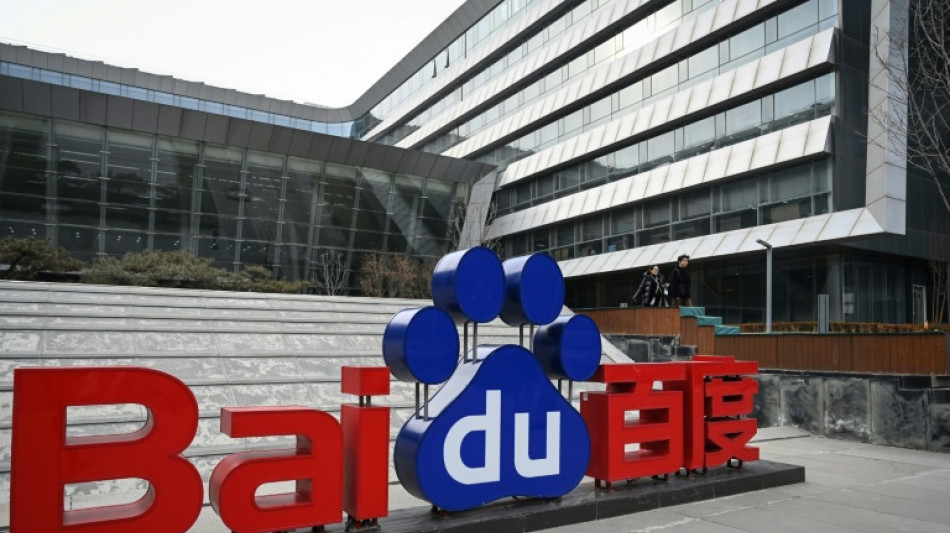

China's Baidu posts rise in Q1 revenue as seeks to grow AI presence
Chinese internet giant Baidu on Wednesday posted a quarterly revenue increase of three percent, as the firm seeks to grow its presence in artificial intelligence and expand its robotaxi business abroad.
The Beijing-based firm operates China's main search engine and has long been a key player in the domestic tech industry -- but faces stiff competition both from traditional rivals like Tencent and Alibaba and a host of newer upstarts.
Baidu derives a large part of its revenue from advertising, a sector vulnerable to fluctuations in consumer sentiment, and has sought to diversify with cloud computing, self-driving cars and AI.
The firm achieved revenue of 32.45 billion yuan ($4.5 billion) in the first quarter of 2025, up 3 percent year-on-year, according to an earnings report released Wednesday on the Hong Kong Stock Exchange website.
Net income during the first quarter reached 7.72 billion yuan, up 42 percent year-on-year.
China's consumer-facing AI sector attracted global attention after startup DeepSeek released a model that performed comparably to competitors such as US-made ChatGPT, apparently at a much lower developing cost.
In March, Baidu announced the launch of its latest X1 reasoning model -- which the company claims performs similarly to DeepSeek's but for a lower cost -- and a new foundation model, Ernie 4.5.
Baidu has also axed subscriptions for its AI chatbot Ernie Bot, making it free for individual users.
"We are confident that our AI-first strategy positions us to remain at the forefront and to capture long-term growth opportunities in the AI era," said Robin Li, co-founder and CEO of Baidu, in the filing.
"We also achieved a pivotal milestone in our robotaxi business, as Apollo Go expanded internationally," Li added.
In March Baidu announced it had signed an agreement to launch autonomous driving tests and services in Dubai, Apollo Go's first international fleet deployment.
The company also plans to start testing self-driving taxis in Europe by the end of this year, a source with knowledge of the matter confirmed to AFP earlier this month.
The company will also start testing in Turkey, they said.
V.Lange--FFMTZ




